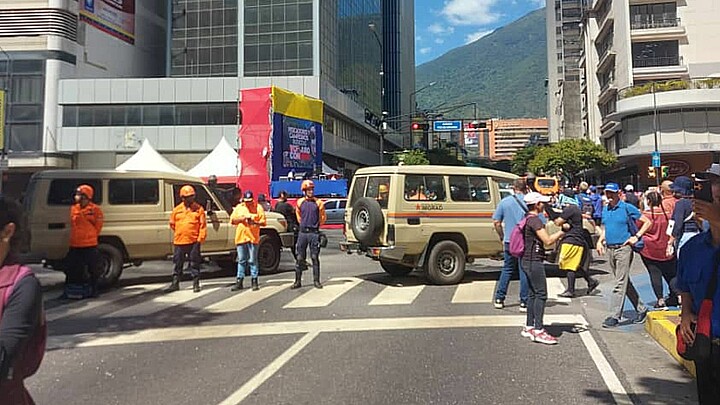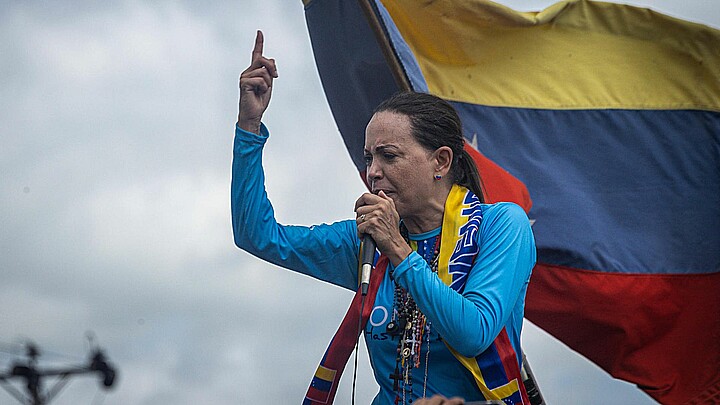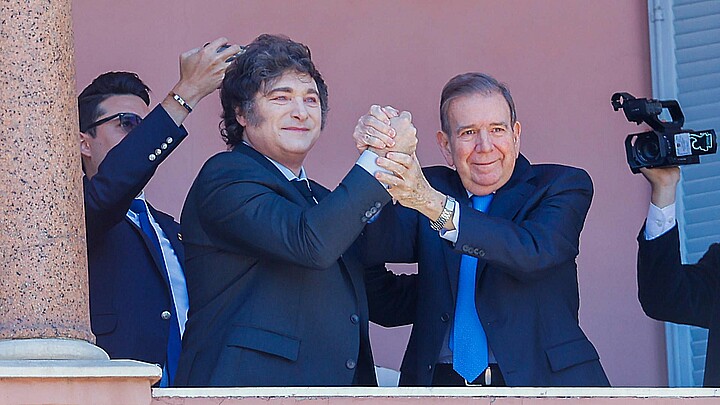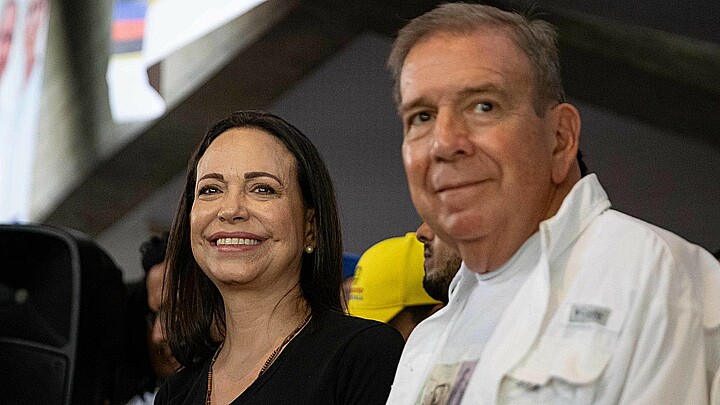Politics
Maduro pledges economic prosperity if he wins election despite high inflation and poverty rate
The country’s current inflation rate is estimated to reach 150% by 2025, but was as high as 63,000% in 2018, according to a report published by Statista, a German based statistics portal that reports on economic and market based issues. Other reports have placed the South American country’s inflation rate even higher.
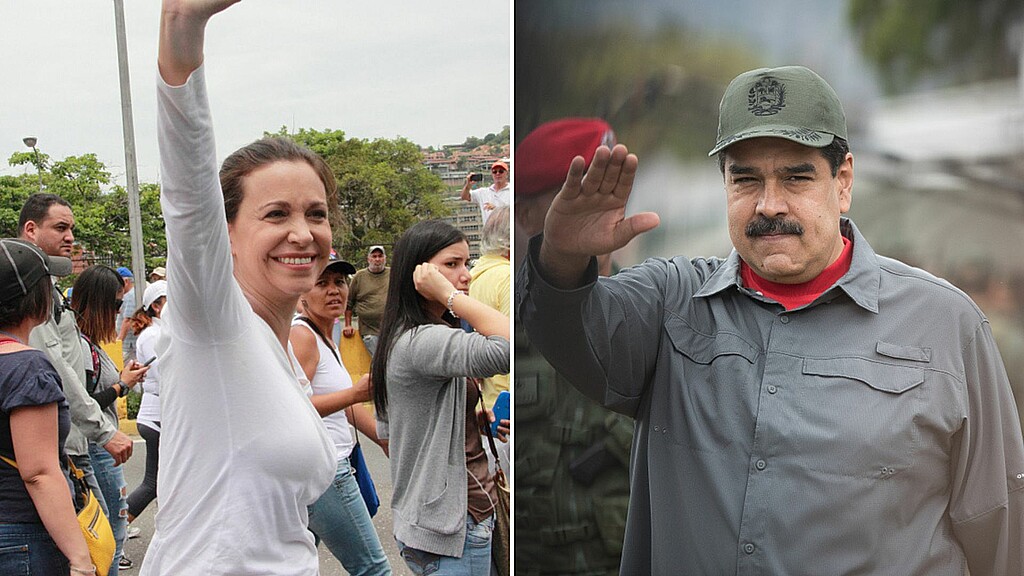
February 15, 2024 12:48pm
Updated: June 25, 2024 9:50am
Venezuelan dictator Nicolás Maduro once again appealed to those who fled their homeland amid its crumbling economy and iron rule, asking them to return to their country.
On Saturday, the communist dictator tried to offer words of encouragement, promising to surprise his detractors with an imminent victory and economic upsurge, which he said will be to the “astonishment of South America.”
“We went through [some difficulties], but we are already improving and recovering, and that is why I have told all those Venezuelans, everyone, wherever they are, (...) come back,” Maduro said in an address that was broadcast on national Venezuelan television during his visit to the reopening of a panel factory in Caracas.
“We left the difficulties behind and now we are moving forward, and no one is going to stop us. We are going to be the wonder of the world. Venezuela will be the wonder of South America, you will see,” he added.
Maduro’s comments come amid some of Venezuela’s worst economic challenges. Once a crown jewel of the South American economy from the country’s rich oil supply, the industry continued to grow until it severely diminished under communist rule since Hugo Chavez came to power in 1998 and it slid into hyperinflation in 2018.
The country’s current inflation rate is estimated to reach 150% by 2025, but was as high as 63,000% in 2018, according to a report published by Statista, a German based statistics portal that reports on economic and market based issues. Other reports have placed the South American country’s inflation rate even higher.
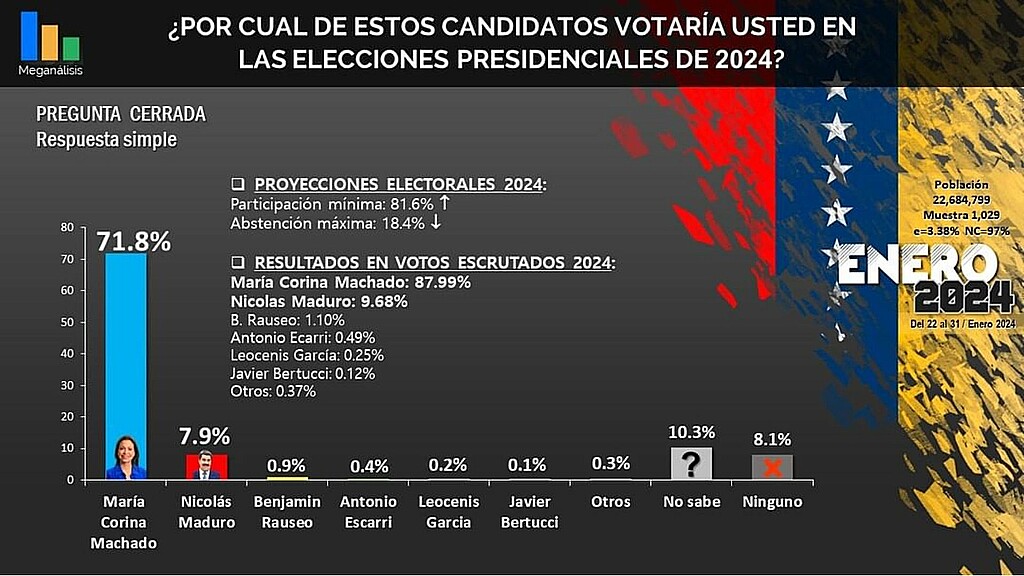
In 2015, Reuters reported that the country’s inflation rate had escalated to 69%, which was the highest in the world, and reached 181% in 2015, according to Foreign Policy magazine. The rate reached 800% in 2016 according to The Economist, and 4,000% in 2017, according to Reuters.
The economy made global records in 2018 as it reached hyperinflation with astonishing rates as high as more than 1,000,000% to the extent the New York Times reported that it had to issue new banknotes.
“Nowadays, various crises heavily impacted the state of the economy, with the high oil dependance, chronic hyperinflation, and international sanctions the country currently stays as one of the most unequal and with highest poverty rates. According to a 2021 survey, almost 91% of households live in poverty conditions and around 68 percent in extreme poverty,” according to Statista.
“Venezuela had everything to be a titan in the global oil industry. One of the founding members of the Organization of the Petroleum Exporting Countries (OPEC), the South American nation holds the largest crude oil reserves in the world, amounting to more than 300 billion barrels. Despite its advantageous resources, a combination of mismanagement, production crises, insufficient financial assets, and economic sanctions have put the Venezuelan oil industry – along with the national economy – on the brink of collapse,” Statista added.
Since the campaigns for the presidential elections began, Maduro has tried to “manipulate” voters with pollsters of dubious origin who have reported that he has more than 50% support, according to a recent report published by the Miami based Hispanic news outlet, Diario las Américas.
Independent media have also reported that the reputed pollsters have been assigned the task of publishing so-called “opinion studies” through the state-controlled media to boost Maduro's candidacy and his prospects for victory despite the low turnout during Chavista rallies as he tours the country.
In early February, Venezuelan pollster Meganalisis published a study that reflects a significant change in popular support for the regime compared to previous periods.
The study also revealed that opposition leader María Corina Machado, who is currently disqualified from participating in this year's presidential elections has an estimated 72% of support from the national voting electorate while communist dictator Nicolás Maduro only had 8%.


